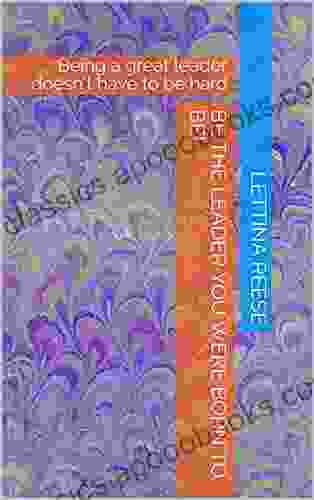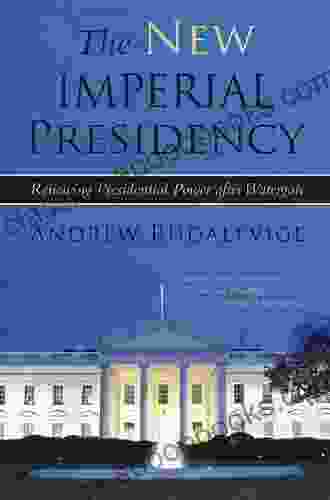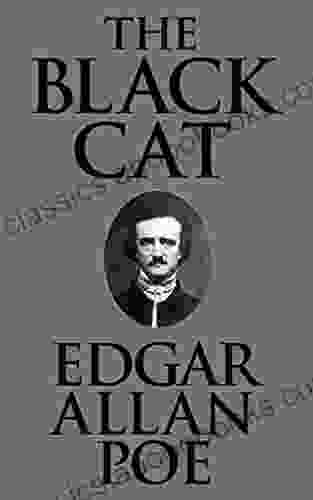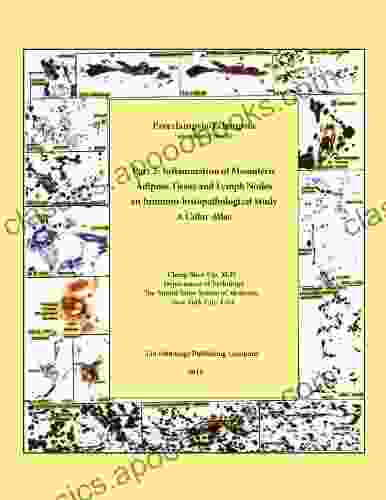America's Imperial Presidency: A Threat to Democracy

The presidency of the United States has undergone a profound transformation over the past century. Once a relatively weak office, the presidency has become increasingly powerful, with the ability to wage war, make law, and even overturn court decisions. This transformation has been dubbed the "imperial presidency," and it poses a grave threat to democracy.
4.7 out of 5
| Language | : | English |
| File size | : | 1526 KB |
| Text-to-Speech | : | Enabled |
| Screen Reader | : | Supported |
| Enhanced typesetting | : | Enabled |
| Word Wise | : | Enabled |
| Print length | : | 376 pages |
| X-Ray for textbooks | : | Enabled |
The imperial presidency is not a new phenomenon. Its roots can be traced back to the early days of the republic, when George Washington set a precedent for executive overreach by issuing a proclamation of neutrality that effectively committed the United States to a policy of non-intervention in the French Revolution. However, the imperial presidency truly came into its own during the 20th century, as presidents such as Woodrow Wilson, Franklin Roosevelt, and Lyndon Johnson expanded the powers of the office to unprecedented levels.
The imperial presidency has been justified on a variety of grounds, including the need for strong leadership in times of crisis, the need to protect national security, and the need to promote economic prosperity. However, the imperial presidency has also been used to justify a wide range of abuses of power, including the use of military force without congressional approval, the suspension of civil liberties, and the violation of international law.
The imperial presidency is a threat to democracy because it undermines the system of checks and balances that is essential to a free and open society. The Constitution gives Congress the power to declare war, to raise and support armies, and to impeach the president. However, the imperial presidency has allowed presidents to wage war, create new armies, and ignore congressional subpoenas with impunity.
The imperial presidency is also a threat to democracy because it erodes public trust in government. When presidents abuse their power, they undermine the legitimacy of the entire political system. This can lead to cynicism, apathy, and even violence.
The imperial presidency is a serious threat to democracy. It is a threat that must be addressed if we are to preserve our freedoms and our way of life.
What can be done to stop the imperial presidency?
There are a number of things that can be done to stop the imperial presidency. First, we need to strengthen the system of checks and balances. This means giving Congress more power to oversee the executive branch and to hold presidents accountable for their actions.
Second, we need to reform the way that presidents are elected. The current system, in which presidents are elected by a small number of swing voters in a handful of swing states, gives presidents too much power. We need to move to a system of national popular vote, in which the president is elected by the most votes overall.
Third, we need to educate the public about the dangers of the imperial presidency. We need to make people aware of the ways in which presidents have abused their power and the threats that the imperial presidency poses to democracy.
The imperial presidency is a serious threat to democracy, but it is not a threat that we cannot overcome. By working together, we can strengthen our system of checks and balances, reform the way that presidents are elected, and educate the public about the dangers of the imperial presidency. We can preserve our freedoms and our way of life.
4.7 out of 5
| Language | : | English |
| File size | : | 1526 KB |
| Text-to-Speech | : | Enabled |
| Screen Reader | : | Supported |
| Enhanced typesetting | : | Enabled |
| Word Wise | : | Enabled |
| Print length | : | 376 pages |
| X-Ray for textbooks | : | Enabled |
Do you want to contribute by writing guest posts on this blog?
Please contact us and send us a resume of previous articles that you have written.
 Book
Book Novel
Novel Page
Page Chapter
Chapter Text
Text Story
Story Genre
Genre Reader
Reader Library
Library Paperback
Paperback E-book
E-book Magazine
Magazine Newspaper
Newspaper Paragraph
Paragraph Sentence
Sentence Bookmark
Bookmark Shelf
Shelf Glossary
Glossary Bibliography
Bibliography Foreword
Foreword Preface
Preface Synopsis
Synopsis Annotation
Annotation Footnote
Footnote Manuscript
Manuscript Scroll
Scroll Codex
Codex Tome
Tome Bestseller
Bestseller Classics
Classics Library card
Library card Narrative
Narrative Biography
Biography Autobiography
Autobiography Memoir
Memoir Reference
Reference Encyclopedia
Encyclopedia Andrew Futter
Andrew Futter Steve Lindahl
Steve Lindahl Paul Born
Paul Born Andy Lanning
Andy Lanning Josephine Jarpa Dawuni
Josephine Jarpa Dawuni Andrea K Stein
Andrea K Stein Toni Gilpin
Toni Gilpin Andrew Hitz
Andrew Hitz Andrew Marantz
Andrew Marantz Vevna Forrow
Vevna Forrow Sandra Marticio
Sandra Marticio Andrew G Lee
Andrew G Lee Hayley Summers
Hayley Summers Stuart Doughty
Stuart Doughty Seon Master Subul
Seon Master Subul Kenneth Mcleish
Kenneth Mcleish Dina Rask
Dina Rask Kelly Flanagan
Kelly Flanagan Philip Thibodeau
Philip Thibodeau Michael Anthony
Michael Anthony
Light bulbAdvertise smarter! Our strategic ad space ensures maximum exposure. Reserve your spot today!

 Israel BellThe Principles of Authentic Attraction: Unveiling the Mystery of Irresistible...
Israel BellThe Principles of Authentic Attraction: Unveiling the Mystery of Irresistible...
 Orson Scott CardBeing a Great Leader Doesn't Have to Be Hard: A Comprehensive Guide to...
Orson Scott CardBeing a Great Leader Doesn't Have to Be Hard: A Comprehensive Guide to... Chris ColemanFollow ·3.2k
Chris ColemanFollow ·3.2k Graham BlairFollow ·14.3k
Graham BlairFollow ·14.3k Paulo CoelhoFollow ·10.7k
Paulo CoelhoFollow ·10.7k Bobby HowardFollow ·13.4k
Bobby HowardFollow ·13.4k Roy BellFollow ·11.2k
Roy BellFollow ·11.2k Douglas AdamsFollow ·11.3k
Douglas AdamsFollow ·11.3k Julio CortázarFollow ·2k
Julio CortázarFollow ·2k Bill GrantFollow ·3.9k
Bill GrantFollow ·3.9k

 Devin Ross
Devin RossUnlocking the Secrets of the Mind: Brain Mapping...
The human...

 Jacob Foster
Jacob FosterNovel of Misconception, Truth, and Love: A Journey of...
Unraveling the Lies We...

 Benji Powell
Benji PowellThe Only Technique You Will Ever Need: Unlocking the...
By [Author's...

 Pete Blair
Pete BlairUnveiling the Enchanting World of 'Magnolia House' by...
A Literary...
4.7 out of 5
| Language | : | English |
| File size | : | 1526 KB |
| Text-to-Speech | : | Enabled |
| Screen Reader | : | Supported |
| Enhanced typesetting | : | Enabled |
| Word Wise | : | Enabled |
| Print length | : | 376 pages |
| X-Ray for textbooks | : | Enabled |











